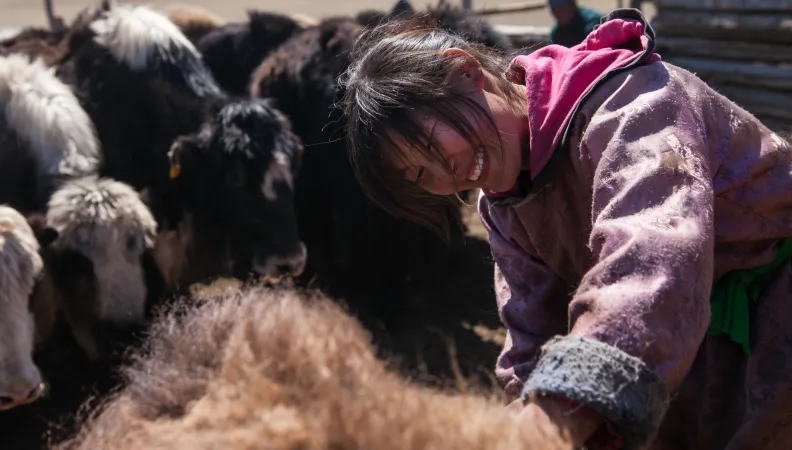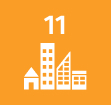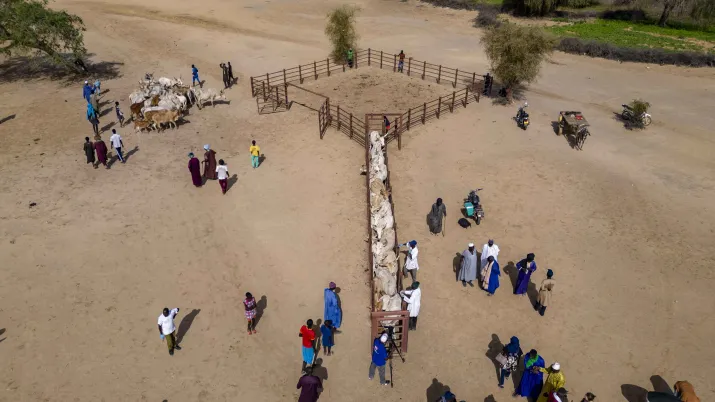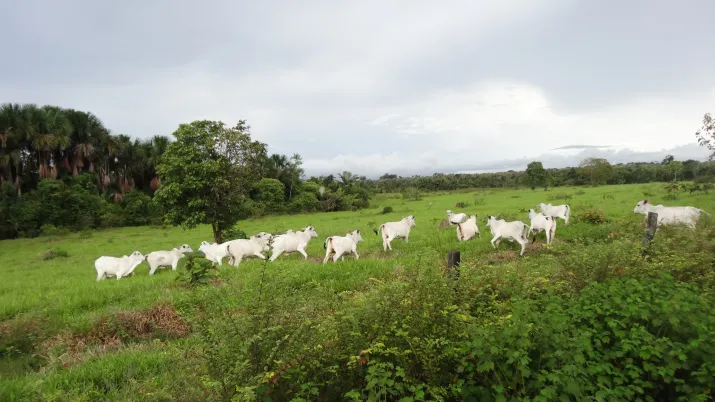Share the page
Working towards a stronger, more replicable sustainable cashmere industry in Mongolia
Project


-
Project start date
-
Status
Completed
-
Estimated date of project termination
-
-
Project financing date
-
-
Financing duration
-
4 years
-
Type of program
-
FFEM
-
Global financing amount
-
€ 2 860 400
-
FFEM financing amount
-
€ 850 000
-
Project lead member institution(s)
-
Ministry for Europe and Foreign Affairs
-
Country and region
-
Mongolia
-
Type of financing
-
Partners
-
Beneficiaries
-
AVSF


In Mongolia, the structure of the sustainable cashmere industry in the province of Bayankhongor combines economic development with natural resource management. The FFEM is supporting the Agronomes et vétérinaires sans frontières association to strengthen this model with a view to making it replicable. The aim is to create a single worldwide certification.
Context
The unregulated increase in herd sizes in Mongolia, started in 1991 to meet the needs of herders and counteract the unpredictable climate, has trapped herders in a vicious circle of herd capitalisation, which over time leads to the degradation of pastures and endangers the country's traditional pastoral way of life. Between 2013 and 2019, backed by the European Union and the FFEM, Agronomes et vétérinaires sans frontières (AVSF) ran a project to set up a sustainable cashmere industry in the province of Bayankhongor, in so doing, creating a niche market for high-end cashmere supported by a certification system.
A new project is now aiming to build on this model based on the experience gained so far and ensure its lasting replicability, scaling-up and the institutionalisation of its results.
Description
The project has four components:
- Consolidating the pasture user groups (PUGs) and the cooperative system in the province of Bayankhongor and extending their scope to two more districts.
- Nurturing optimal economic, organisational and institutional conditions to ensure the model's replicability and sustainability.
- Facilitating the cooperatives’ access to markets and financial services to boost the model's chances of success.
- Rolling out a system to assess environmental and social impact with a view to monitoring the certification of sustainable pasture management.
Outcomes
- Recognising and promoting a sustainable industry, namely by implementing a certification process.
- Assessing environmental and social performance within the industry.
- Ensuring collaborative and common modes of governance for the various economic and social actors, particularly through cooperative and partnership models.
- Sustainable management of natural and land resources.
Innovative and exemplary features
This pioneering project closely aligns income generation with sustainable management of natural resources by local herding communities, working as cooperatives. Admired and sold worldwide, cashmere can serve to champion on a huge scale a mode of production that actively contributes to preserving Mongolia's natural resources. That is why the project aims to create an internationally recognised ‘Sustainable Cashmere’ certification, which will be used to replicate and scale-up the model. The project also seeks to develop a method for assessing the industry’s environmental and social impact.
Sustainable Development Goals
ODD11 Sustainable cities and communities

ODD12 Responsible consumption and production





